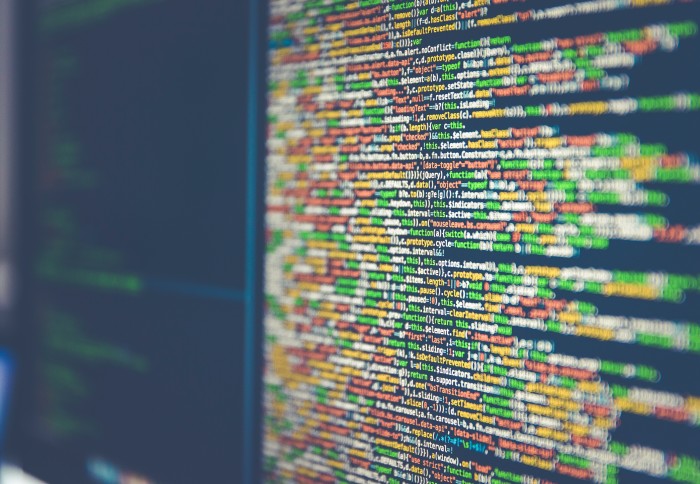Imperial team to launch COVID-19 information platform

A new Imperial-led project is building a global knowledge platform to help the healthcare community deliver high-quality care to COVID-19 patients.
The platform will pool global data on COVID-19 from over half a million sources. Using artificial intelligence combined with data analysis and expert review, it will extract the most important insights in real-time so clinicians and policymakers have access to current, reliable information to guide decision-making and research. This could help doctors develop better treatment plans that are based on the best available evidence.
Called REDASA (REaltime Data Analysis and Synthesis), the platform has been developed by PanSurg, a COVID-19 surgical network made up of Imperial’s healthcare professionals and academics from the College’s Institute of Global Health Innovation and Department of Surgery and Cancer. REDASA is being created in collaboration with a consortium of technology companies comprising Cloudwick, MirrorWeb, and Amazon Web Services (AWS) EMEA SARL.
“We are excited to create a reliable, accurate information source with REDASA, for healthcare professionals seeking guidance during the pandemic.” Mr James Kinross Clinical Senior Lecturer and lead for PanSurg
The current pandemic has given rise to a huge mass of material on COVID-19 scattered across a vast range of sources. Yet, there is limited guidance and consensus on how to best deliver care for coronavirus patients. REDASA was launched to address these issues.
“Healthcare professionals are facing huge volumes of academic literature, public information and noise on COVID-19, making it challenging to extract key insights and translate these into best clinical practice,” said Mr James Kinross, Clinical Senior Lecturer and lead for PanSurg.
“We are excited to collaborate with Cloudwick, MirrorWeb and Amazon Web Services to create a reliable, accurate information source with REDASA, for healthcare professionals seeking guidance during the pandemic.”
Building the platform
REDASA uses MirrorWeb’s website capture technology to collect large volumes of data at speed. The organisation, which specialises in archiving and monitoring web channels, uses machine learning to ensure the information gathered from public data sources is accurate and credible. These include medical journals, healthcare literature and news sources on a daily basis.
The information is then stored and processed on Cloudwick’s data and analytics platform, Amorphic. This uses advanced data science techniques to generate automated insights and provides a secure way for users to access the information.
AWS machine learning services, together with human curation, then enable REDASA to perform deep data analysis and quickly extract the most important insights. This helps teams to make sense of the vast amounts of information pouring in.
“COVID-19 has made it clear just how challenging it is to find critical information quickly and easily in an ‘infodemic’ situation, with the noise of millions of articles to sift through.” Dr Matthew Howard International Healthcare Data Science Lead at Amazon Web Services EMEA SARL
The platform enables a ‘live systematic review’ so that the information is continuously updated and analysed. This data is then provided to private and public sector healthcare organisations and physicians to help improve treatment and accelerate research and development.
“We are incredibly proud to be a part of the global PanSurg project. By unifying the expertise that exists across technology and the medical community, we've been able to apply MirrorWeb's archiving capabilities to support the frontline in its fight against COVID-19,” said Karl Stringer, Chief Product Officer at MirrorWeb.
“Cloudwick is humbled to be a part of the PanSurg consortium,” said Harshdeep Singh, Director of Operations – EMEA, at Cloudwick Technologies UK. “We are excited to provide Cloudwick's Amorphic data platform to help PanSurg achieve its vision of making research available to frontline staff during and beyond the COVID-19 pandemic.”
“COVID-19 has made it clear just how challenging it is to find critical information quickly and easily in an ‘infodemic’ situation, with the noise of millions of articles to sift through,” said Dr Matthew Howard, International Healthcare Data Science Lead at Amazon Web Services EMEA SARL.
“This solution we are developing with PanSurg, and AWS Partner Network (APN) Partners, Cloudwick and MirrorWeb, combines the best of expert human review with AWS machine learning technologies. Our aim is to provide a new approach that will put the most accurate information possible in the hands of healthcare professionals, help improve medical knowledge, and develop more effective methods of patient care that will make a difference to frontline healthcare workers.”
A valuable collaboration
With the help of Cloudwick, MirrorWeb, and AWS, PanSurg has been able to quickly build their testing platform. The team has built a minimum viable product that will launch in the coming months. This will become an important legacy project with applications beyond COVID-19.
The present focus is to support the healthcare community on COVID-19 through REDASA. But if this is successful, Mr Kinross believes this model could enable healthcare information sharing in this manner more widely, for example for other diseases such as cancer.
About the partners
PanSurg is a global hub for surgeons and related professionals to share experiences, policy, data and research for the delivery of safe, effective surgery during the pandemic.
MirrorWeb has developed a leading SaaS web archiving and monitoring solution for financial services, governments and international organisations across the private and public sector.
Cloudwick is an AWS Advanced Consulting Partner with machine learning, artificial intelligence, devOps and data and analytic competency certifications for enterprise and public sector.
Article text (excluding photos or graphics) © Imperial College London.
Photos and graphics subject to third party copyright used with permission or © Imperial College London.
Reporter
Nikita Rathod
Communications Division